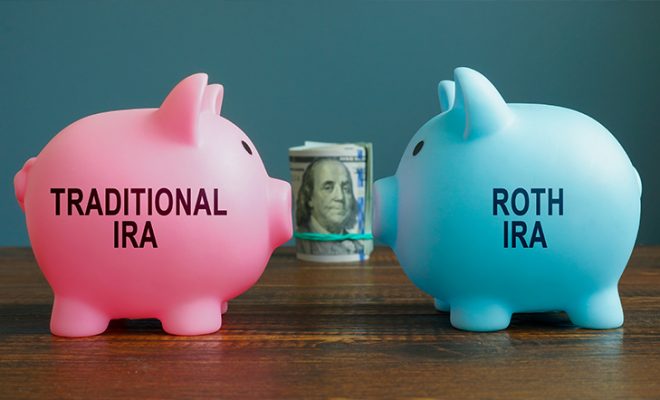How to Decide the Right Time For You To Retire

Retirement can draw mixed emotions in most people. For some, it is a welcomed change, while others may see it as a bitter passage to old age. Irrespective of the category you fall into, transitioning from a working individual to a retired person can be challenging. Finding a routine, letting go of your job and work duties, securing yourself financially, etc., requires time and effort. The emotional baggage of settling into a life without work is also complicated for most. This is why it is crucial to retire at the right time.
However, there is no fixed right or wrong time to retire. Your decision to stop working is entirely your own and can be made at different junctures of life. A lot of people these days prefer to retire in their 40s or 50s, while others continue to work till their 70s and even 80s. Retiring too soon can be hard financially as you have to account for a longer retirement and be equipped to handle your financial needs amidst rising prices. Similarly, retiring too late can be hard on your health. It may even impact your personal life negatively. Ultimately, the perfect retirement can only be achieved when you are mentally and financially ready. Consider using the services of a professional financial advisor who can help assess your retirement needs and provide effective savings strategies to help you achieve your financial goals.
Keep reading to learn more on the best time to retire, based on your financial situation and goals.
When is a good time to retire?
Before deciding on your retirement age, you must ask yourself the following two questions:
1. Are you financially ready to retire?
Being financially ready goes beyond looking at your bank balance. Many people aim to save $1 million for their retirement fund and plan to retire as soon as they hit the target. However, there are several other aspects to pay attention to. Your retirement can last many years, depending on your life expectancy. If you retire at the age of 60, you may have a retirement of up to 30 years. If you retire sooner, this could be longer. This is a considerable time, and savings of $1 million would not suffice in most cases. With a corpus of $1 million, you would have approximately $33,333 per annum, which can be grossly inadequate for a family.
Moreover, this amount does not deduct any taxes or account for inflation. With these factors, your retirement fund is further reduced. Therefore, make sure to pay attention to your holistic financial status and needs before deciding to retire. When you do this, you need to look at your insurance and determine whether it is sufficient for you and your dependents. You must also take a look at your debt liabilities. Carrying debt into retirement can be detrimental to your financial and mental well-being. So, make sure to eliminate all debts, including credit card debt, before you decide to retire. If you still depend on your credit card for most of your needs and struggle to pay the interest at the end of the cycle, you may want to wait a while and get your affairs in order before you take the plunge.
2. Are you emotionally ready to retire?
Emotional preparedness is often ignored, as most people only pay attention to their financial needs while planning for retirement. However, being emotionally ready is essential to ensure a happy retirement. Transitioning from a busy life to a relaxed one is not always as easy as it seems. To top it off, the financial constraints can further add to stress and tension. So, make sure that you understand what your life will be like post-retirement and then retire. Finding hobbies or like-minded people can be very helpful. You can look at clubs in your area and join one for socializing purposes. This can be a great way to spend time with people your age and have something to do throughout the day. It is also essential to pick a suitable place to settle down after retirement. This can be done by looking at the standard of living of different states, understanding their tax laws, crime records, general demographics, climate, healthcare, etc.
Things to keep in mind when deciding when to retire
Here are some things you can consider when planning your retirement age:
1. Understand the value of your retirement fund:
As discussed above, your retirement nest egg’s value is not limited to your total savings balance. When reviewing your retirement nest egg, you must consider several aspects. You can start with your investments. Look at your investment portfolio and the types of investment you have your money in. Consider your present risk and future risk appetite and accordingly make changes to your portfolio. If you have a lot of money in equity or stocks, you may want to switch to debt to lower your risk appetite. Equity is a high-risk category, which can bring unwanted volatility to your portfolio in retirement. So make sure that your portfolio is well-aligned with your changing risk tolerance levels.
In addition to this, look at your investments and their taxability. If you have invested in traditional retirement accounts like the 401k and the Individual Retirement Account (IRA), you would have to pay tax on your distributions. In addition to this, you would also have to take Required Minimum Distributions (RMDs) from the age of 72 or 70.5 if you reach 70.5 before January 1, 2020. On the other hand, if you have been investing in the Roth versions of these accounts, you would not have any tax liabilities or RMDs in the future.
Take a look at these factors and then plan your retirement expenses. If you owe taxes, your retirement fund will shrink from what it is now. Your retirement nest egg will also be impacted based on the state you retire in. For instance, if you retire in Alaska, Tennessee, Nevada, South Dakota, Florida, Washington, Texas, or Wyoming, you will not pay any state income taxes. But it is not advised to look at taxes alone. It would help if you also considered the standard of living of the state. For example, Alaska has the lowest tax rate in the country, but it is also one of the most expensive states to live in. So your savings will ultimately be converted to expenses if you settle here. Therefore, look at your retirement nest egg in association with other external factors like taxes, the standard of living, future portfolio returns and risk, etc.
2. Eliminate all debt liabilities:
When thinking about the right time to retire, you must first look at your outstanding debts. If you have a mortgage on your home or a student loan for a child, it may be advised to postpone your retirement. The sensible thing to do here is to save more, settle your debt, and then retire. Your retirement fund is a limited pool of money that is subjected to many certainties. There is also some amount of longevity risk in retirement. You may live longer and outlive your savings. You may have health emergencies leading to financial distress, too. Personal events like divorce or the loss of a loved one can also have financial repercussions. Therefore, it is important not to burden your retirement savings with debt. High-interest debt is an unwanted expenditure that can be hard to pay off. Further, if you have collateral against a loan, such as a home, you risk losing it if you are unable to clear your dues.
A lot of parents like to help their children with their college education and end up co-signing student loans with them. However, if your child’s college education and your retirement fall at the same time, it may be advised to prioritize your retirement. Your child has their whole life ahead of them and can repay the loan when they get a job. However, it can be hard to earn money when you are old. If you use up your retirement money for your children, you will risk your financial security. This can lead to many problems, including financial distress, resentment for your children, and other similar issues.
3. Consider the financial responsibilities of your dependents:
While supporting yourself along with your dependents, consider using different investments for different goals. For instance, your IRA and 401k can be used for your retirement needs, whereas a 529 education account can be specifically used for your children’s education expenses.
If you are supporting your aging parents, make sure your parents have adequate long-term care and health insurance. This will ensure they get the care they need when they are older. It will also remove the financial burden off your shoulders. These aspects should ideally be taken care of before your retirement to ensure there is no hassle later.
4. Talk to your spouse about your finances and liabilities:
If you are married or living with your partner, you must check the financial standing of your spouse. The joint household income and savings for couples is evidently more than a single person. So, you can base your decision to retire according to the savings you both have. Along with savings, you must also look at your spouse’s liabilities. If you are filing your taxes jointly, you would be impacted by your spouse’s tax liabilities. Creditors can also easily come after your money. So make sure that your spouse and you are on the same page regarding your finances.
Additionally, it can help for one spouse to keep working while the other retires. This eases the transition for a couple. Moreover, you have one income to support your expenses while the other person navigates their way around retirement. However, this can also impact you negatively. You may experience loneliness if you are alone at home while your spouse is out for work. The psychological consequences can be different for different people. But an honest conversation about the needs of both spouses can be helpful in planning a comfortable retirement.
5. Consult a financial advisor:
Retirement planning is a critical aspect of financial planning. It is also very complex. The decision to retire is not as simple as picking out a date. It entails a lot more intricate details, such as your debt situation, emergency savings, the state of your financial assets, emotional preparedness, spending habits, and more. Retirement is a significant milestone in your investment journey as well. Reviewing your portfolio and rebalancing it right before you retire is crucial. All of these things can require time and proper knowledge. There is a limited scope of error in retirement as the stakes are much higher. You do not have an income coming in every month to make up for losses. So, getting professional assistance on retirement matters, including the right time to retire, is essential. A financial advisor can help you decide a good time to retire, how to transition into retirement with suitable investments in your portfolio, ways to lower taxes in retirement, and much more.
To summarize
An ideal retirement lifestyle can mean different things to different people. So, avoid mimicking your peers, friends, or family and follow your own path. You may want to retire early or continue working for as long as you can. The choice is entirely yours. However, you must have the financial means to support either of these decisions. In addition to this, it is also essential to understand that life does not always go as planned. Therefore, you may have to be ready for unforeseen circumstances as well.
If you need any help in planning your retirement, you can always consider hiring a professional financial advisor who can help you avoid any errors or lapses along the way. Use the free advisor match service to connect with 1-3 financial advisors based on your financial requirements. All you need to do is answer a few simple questions about yourself and the match tool will connect you with advisors that are best suited to assist you with your financial needs.
For further information on creating a suitable retirement plan for your unique financial requirements, visit Dash Investments or email me directly at dash@dashinvestments.com.
About Dash Investments
Dash Investments is privately owned by Jonathan Dash and is an independent investment advisory firm, managing private client accounts for individuals and families across America. As a Registered Investment Advisor (RIA) firm with the SEC, they are fiduciaries who put clients’ interests ahead of everything else.
Dash Investments offers a full range of investment advisory and financial services, which are tailored to each client’s unique needs providing institutional-caliber money management services that are based upon a solid, proven research approach. Additionally, each client receives comprehensive financial planning to ensure they are moving toward their financial goals.
CEO & Chief Investment Officer Jonathan Dash has been covered in major business publications such as Barron’s, The Wall Street Journal, and The New York Times as a leader in the investment industry with a track record of creating value for his firm’s clients.










